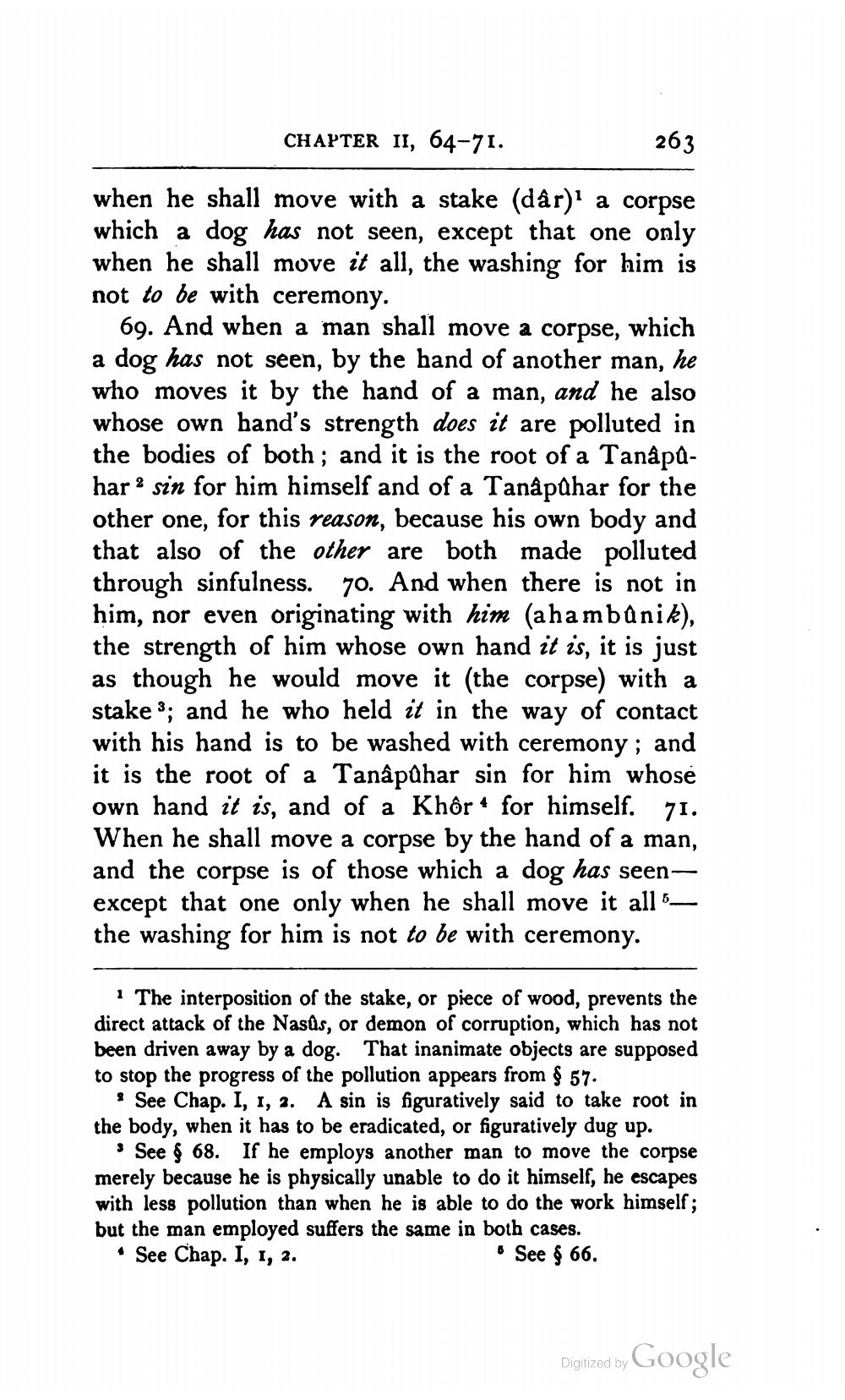________________
CHAPTER II, 64-71.
263
when he shall move with a stake (dår)' a corpse which a dog has not seen, except that one only when he shall move it all, the washing for him is not to be with ceremony.
69. And when a man shall move a corpse, which a dog has not seen, by the hand of another man, he who moves it by the hand of a man, and he also whose own hand's strength does it are polluted in the bodies of both; and it is the root of a Tanapahar 2 sin for him himself and of a Tanápahar for the other one, for this reason, because his own body and that also of the other are both made polluted through sinfulness. 70. And when there is not in him, nor even originating with him (aha mbûnik), the strength of him whose own hand it is, it is just as though he would move it (the corpse) with a stake 3; and he who held it in the way of contact with his hand is to be washed with ceremony; and it is the root of a Tanâpühar sin for him whose own hand it is, and of a Khôr 4 for himself. 71. When he shall move a corpse by the hand of a man, and the corpse is of those which a dog has seenexcept that one only when he shall move it all 6– the washing for him is not to be with ceremony.
The interposition of the stake, or piece of wood, prevents the direct attack of the Nasûs, or demon of corruption, which has not been driven away by a dog. That inanimate objects are supposed to stop the progress of the pollution appears from $ 57.
See Chap. I, 1, 2. A sin is figuratively said to take root in the body, when it has to be eradicated, or figuratively dug up.
See $ 68. If he employs another man to move the corpse merely because he is physically unable to do it himself, he escapes with less pollution than when he is able to do the work himself ; but the man employed suffers the same in both cases. * See Chap. I, 1, 2.
See $ 66.
Digitized by Google




